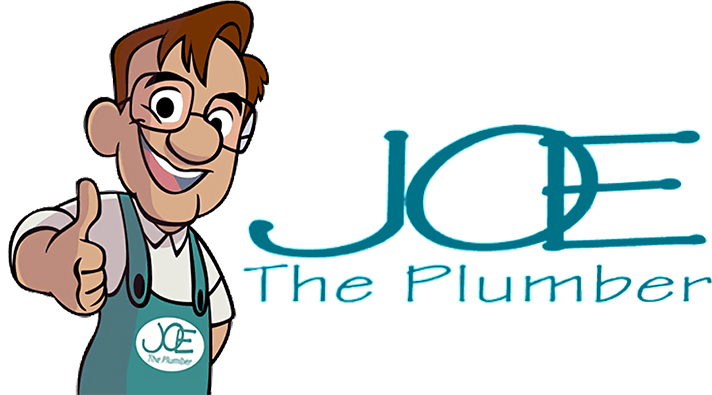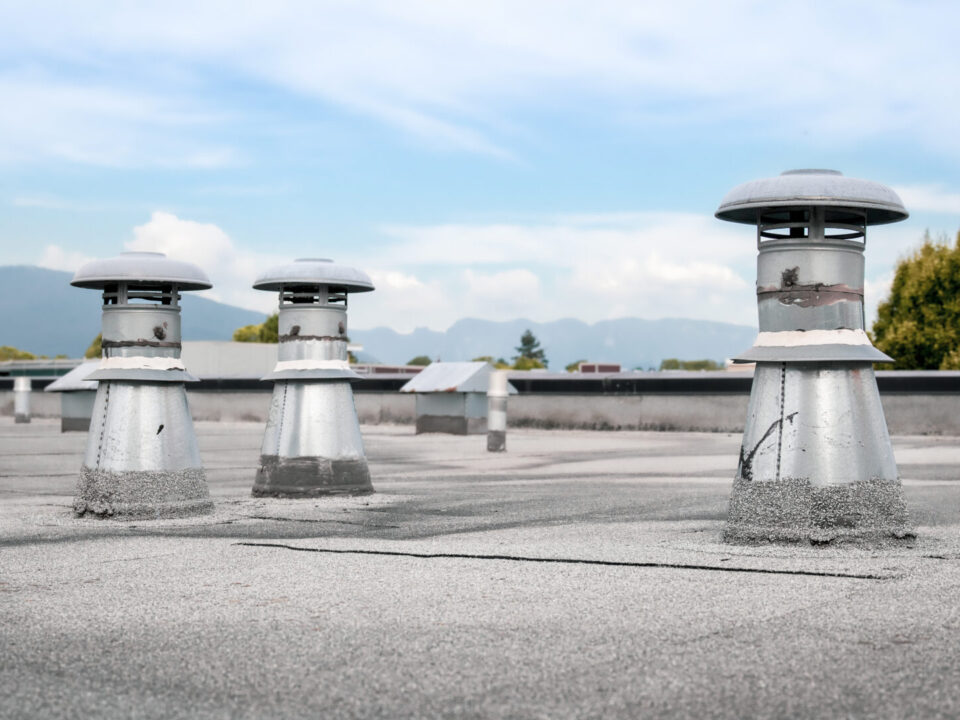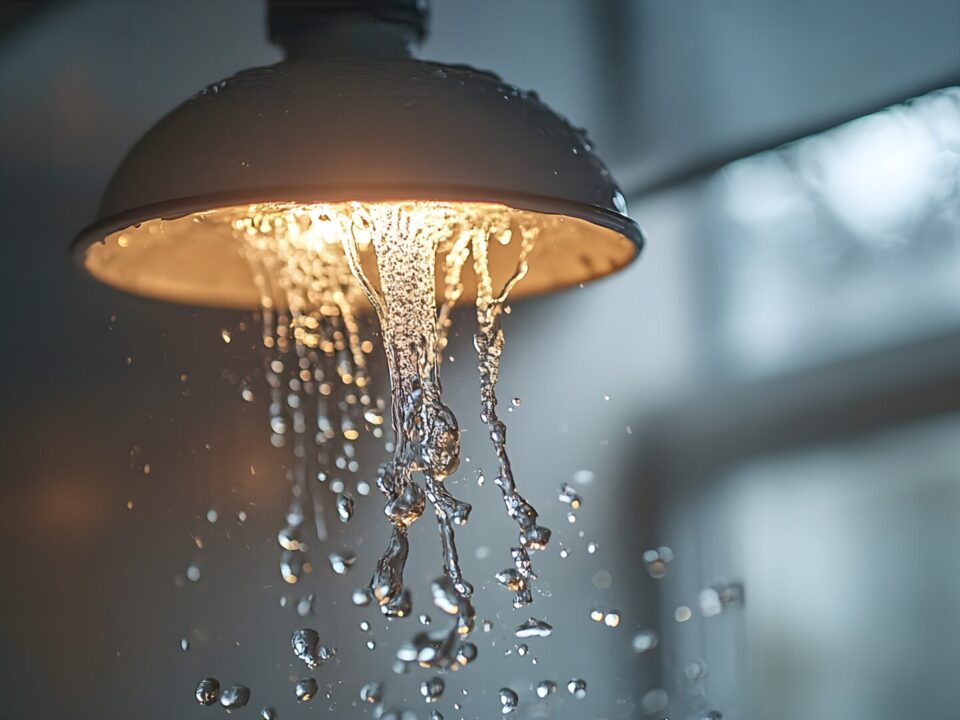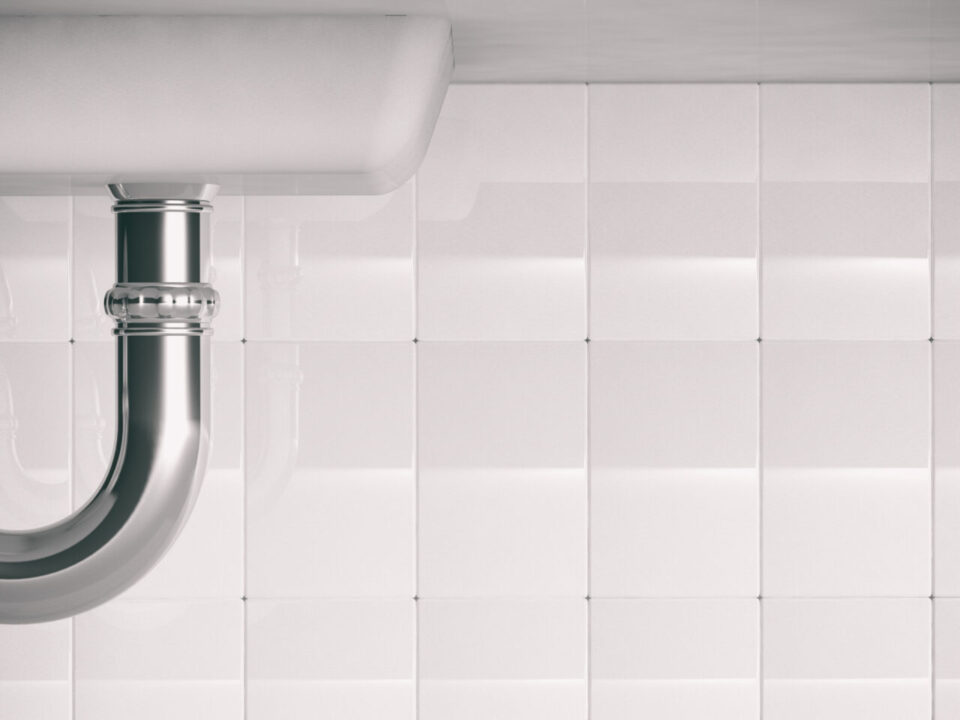Galvanized pipes were once a staple in plumbing systems, especially in homes built before the 1960s. Though they were a revolutionary choice at the time due to their affordability and durability, advancements in plumbing materials have since revealed some potential concerns. Homeowners with older houses may still have galvanized pipes in their plumbing systems, which can lead to various issues over time, including health risks and property damage.
What is Galvanized Pipe?
Galvanized pipes are steel pipes coated with a layer of zinc to prevent rust and corrosion. This process, known as galvanization, was initially used because it extended the pipe’s life expectancy compared to standard steel or iron pipes. The zinc layer served as a protective barrier, preventing water from coming into direct contact with the metal, thereby reducing rust.
For decades, galvanized steel was the go-to material for water supply lines in residential properties. It was affordable, strong, and seemed like a good solution to the common problem of pipe corrosion. However, despite its early popularity, many homeowners now find themselves facing issues with these outdated plumbing systems.
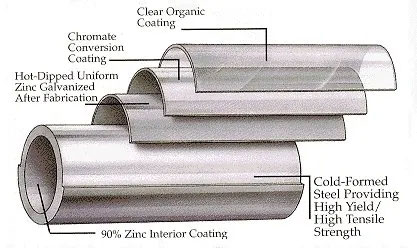
The Problems with Galvanized Pipes in Your Home
If your home still has galvanized plumbing, you’re likely to experience a host of problems as the pipes age. Here are the most common issues associated with galvanized steel pipes:
1. Corrosion and Rust Buildup
Over time, the zinc coating on galvanized pipes begins to erode, leaving the steel underneath vulnerable to rust and corrosion. Once this occurs, the pipes can develop blockages, restricting the flow of water throughout your home. This not only results in reduced water pressure but can also cause uneven water distribution.
Rust buildup can also cause your water to turn a reddish-brown color, which is a clear sign that your pipes are deteriorating. The water may also develop a metallic taste, making it unpleasant and unsafe for consumption.
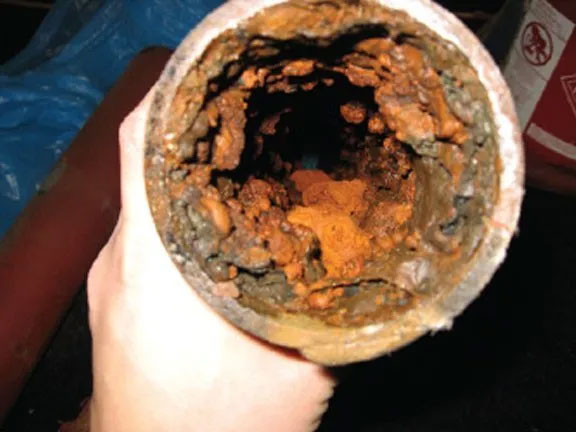
2. Reduced Water Flow
As the inner walls of galvanized pipes corrode, minerals from the water can accumulate, leading to clogs and reduced water flow. You might notice that water comes out of your faucets more slowly or that your shower pressure is significantly lower than before. This reduction in water flow can make everyday tasks like washing dishes or doing laundry more frustrating.
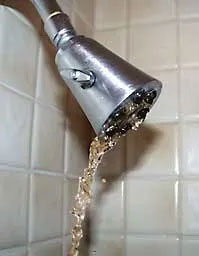
3. Leaks and Pipe Bursting
As corrosion weakens the steel in galvanized pipes, they become more prone to leaks and bursts. Leaks can cause extensive water damage to your home, especially if they occur behind walls or under floors. In extreme cases, the pipes may burst, leading to costly repairs and even structural damage to your property.
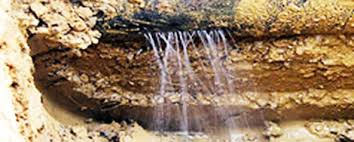
4. Health Concerns
Perhaps the most concerning issue with galvanized pipes is the potential health risks they pose. As the pipes corrode, lead from the zinc coating can leach into your drinking water. Prolonged exposure to lead can lead to serious health problems, including developmental delays in children, cardiovascular issues, and kidney damage in adults.
The risk of lead contamination is particularly high in homes with galvanized pipes connected to older lead service lines. In such cases, replacing your galvanized pipes is crucial to ensuring the safety of your household’s water supply.
If you see orange water when turning on a faucet that has not been used for some time, you may have corroded galvanized piping. Having to constantly clean out your faucet aerators is another sign your pipes are corroded. If you are experiencing any issues with your piping, be sure to immediately contact an experienced plumber near you. Its better to take care of the issue before the damage gets worse. 281-306-5138
How Galvanized Pipes Affect Your Health
One of the most significant concerns surrounding galvanized pipes is the potential health risks. Here are the main health issues associated with these outdated pipes:
1. Lead Exposure
As mentioned earlier, galvanized pipes can introduce lead into your drinking water. Lead poisoning is a serious health issue, especially for young children and pregnant women. Even low levels of lead exposure can cause developmental delays, learning disabilities, and behavioral problems in children. In adults, lead exposure can increase the risk of high blood pressure, heart disease, and reduced kidney function.
2. Bacteria Growth
The inner surfaces of corroded pipes are often rough and can trap particles, leading to bacterial growth. If your galvanized pipes have deteriorated to the point where rust is visible in your water, the potential for bacteria contamination increases. This can pose additional health risks, especially for individuals with weakened immune systems.
3. Heavy Metal Contamination
Besides lead, other heavy metals such as cadmium and zinc can accumulate in the water supply due to the corrosion of galvanized pipes. While these metals may not be as dangerous as lead, long-term exposure can still negatively impact your health. For instance, cadmium exposure is linked to kidney damage and bone fragility, while excessive zinc can cause nausea, vomiting, and stomach cramps.
Identifying Galvanized Pipes in Your Home
If you’re unsure whether your home still has galvanized pipes, there are a few easy ways to identify them. First, locate an exposed section of your plumbing system, such as in your basement or near your water heater.
- Look for the Color: Galvanized steel pipes are typically gray or silver in color. They can sometimes have a dull, matte finish compared to shiny copper or plastic pipes.
- Magnet Test: If you’re still unsure, use a magnet to test the pipes. Galvanized steel is magnetic, while copper or plastic pipes are not.
- Inspect for Rust: If you notice any reddish-brown rust spots or flaking on the exterior of the pipe, it’s a sign of corrosion and an indication that the pipes are galvanized.
Should You Replace Galvanized Pipes?
Given the risks associated with galvanized pipes, many homeowners wonder whether they should replace their plumbing. While replacing your entire plumbing system may seem like a costly and time-consuming project, it is often necessary to prevent future problems. Here’s when you should consider replacing your galvanized pipes:
1. Age of the Pipes
If your home was built before the 1960s and has not had its plumbing system updated, there’s a good chance that your pipes are galvanized. Given the average lifespan of galvanized pipes is about 40-50 years, any pipes this old are likely nearing the end of their service life.
2. Low Water Pressure
If you’re experiencing frequent issues with low water pressure, it could be due to corrosion or mineral buildup inside your galvanized pipes. Replacing them with newer materials such as copper or PEX piping can restore your water pressure and improve the overall performance of your plumbing system.
3. Water Discoloration or Lead Concerns
If you notice reddish-brown water or are concerned about the possibility of lead contamination, replacing your galvanized pipes is the safest option. A licensed plumber can test your water for lead and other contaminants and recommend the best course of action for your home.
Modern Plumbing Solutions
Today, most plumbers recommend replacing galvanized pipes with safer and more durable materials. Common alternatives include:
- Copper Pipes: Highly durable and resistant to corrosion, copper pipes are a popular choice for water supply lines. They also have a long lifespan, making them a reliable option for homeowners.
- PEX (Cross-Linked Polyethylene): PEX piping is flexible, resistant to scaling, and easy to install. It is becoming increasingly popular as a cost-effective alternative to copper.
- PVC Pipes: PVC (polyvinyl chloride) pipes are commonly used for drainage systems and cold water supply lines. They are lightweight, inexpensive, and resistant to corrosion.
Replacing galvanized pipes with any of these modern materials can significantly improve your home’s plumbing system and reduce the risks associated with aging pipes.
Galvanized Piping Problems? Contact Joe the Plumber Today!
Give us a call and a Joe The Plumber Tech will be happy to provide a free quote. We are also running a special allowing you the option to get a 6yr warranty water heater or a full house water filtration system with parts and installation for free. If you exhibit any of the signs listed above, don’t wait any longer. Galvanized piping can be extremely unreliable. Please give us a call and set your mind at ease. 281-306-5138
For more related content be sure to check out our blog for the latest tips on plumbing! If you need plumbing repairs, contact a Cypress plumber today. We are available 24/7.




